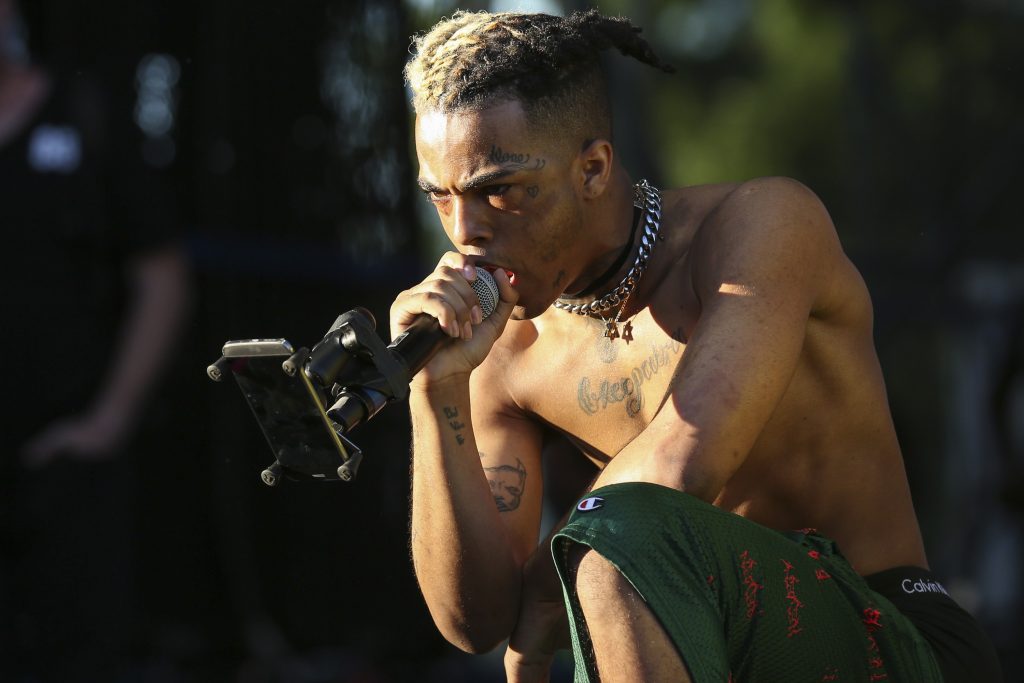Over the course of the last year in America, dozens of celebrities and public figures have met scrutiny, legal charges, and even unemployment because of their actions both in and outside of their privileged professions. Such household names as Kevin Spacey, Kanye West, and countless others have left us wondering if we can separate artists and their work from their poor actions and what they represent.
I don’t think this is a question that can be answered simply with a yes or no. I think it is important to remember that we can appreciate people’s content, accomplishments, and influence without necessarily condoning every single thing they do. This, of course, leads to the problem of choosing between self morality and genuine admiration of good art.
Most recently, the death of Jahseh Onfroy, best known by his stage name XXXTentacion, left fans and critics alike with a moral problem. For the latter part of the rapper’s short career, he was widely known for his violent and despicable history of domestic violence. Perhaps most notably, Onfroy attacked his pregnant girlfriend in 2016. He had a laundry list of other serious charges as well and was known for his unpredictable behavior.
Musically, however, he was regarded by many in and out of the industry as one of the most promising and versatile young artists. His two studio albums, <em>17</em> and <em>?</em>, were acclaimed by artists and reviewers as successes, and both did impressively well on the charts.
Onfroy was shot and killed in Deerfield Beach, Florida, on June 18 while he sat in his car just outside of a motorcycle dealership. He was only 20 years old. Once again, we are left raising the moral question: Can we separate artists and their work from their poor actions?
If people support someone who has done terrible things, are they in fact admitting that they can be skipped over for their own enjoyment? There doesn’t seem to be a singular resolve. Social media went into a frenzy following Onfroy’s death, going back and forth about whether his work, and ultimately his life, should be celebrated, given the brutal nature of the actions he had committed in his personal life. This is where the lines get blurred, because accountability has no expiration date.
When it comes to serious accusations such as domestic violence, we cannot just proverbially sweep these things under the handy rug. We must hold those who commit heinous acts responsible, and it is hard to ignore them when we want to enjoy artists’ content.
I don’t believe that we can fully separate artists from who they are as people, because their art should emulate who they are. They cannot get a free pass to behave any way they like and still live a lavish lifestyle with millions of unabashedly hard-core fans. However, I do believe in rehabilitation. I believe that in holding people accountable for their actions, and in the case of XXXTentacion, pursuing justice for his victim, we must still give artists the chance to rehabilitate themselves. They are people, just as we are, and their elevated status doesn’t make them exempt from mercy, or at least the chance to better themselves and have a more positive impact.
In the final months of the late rapper’s life, he showed promising signs of polishing up his image. He donated money to various charities, put on his own charity events, stayed out of trouble, and offered daily words of encouragement to fans all over the world. While he will be remembered by many for the unforgivable things he did, I think we can still enjoy his music and respect his artistry. A legacy is not defined solely by people’s accomplishments nor their downfalls. Legacy is defined by the way people positively affect others and whether people strive to be better for themselves and for the others around them. In the case of XXXTentacion, the troubled young artist will forever be regarded as one big question mark.



